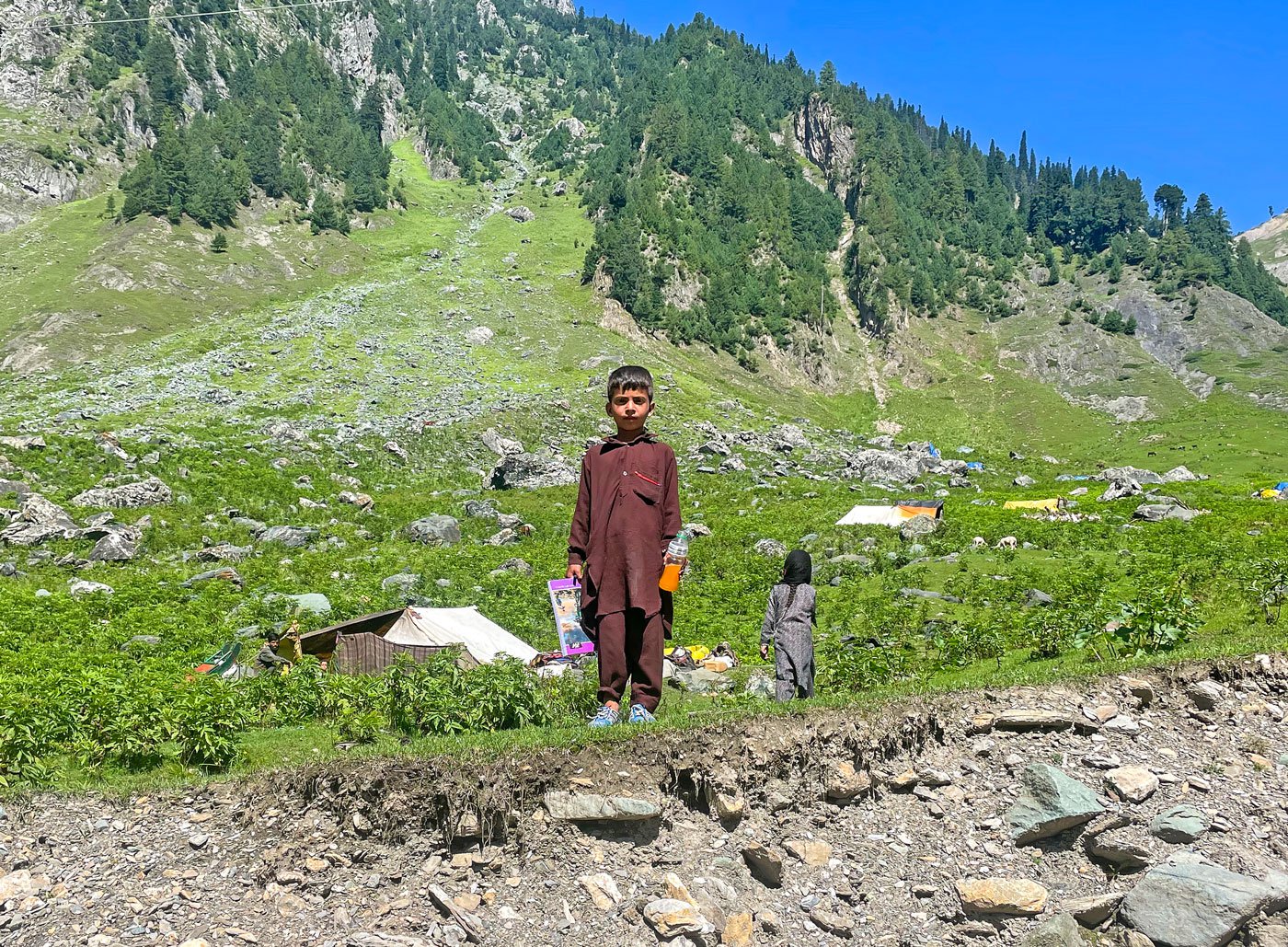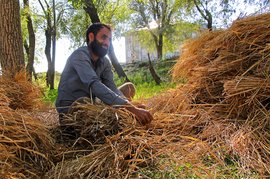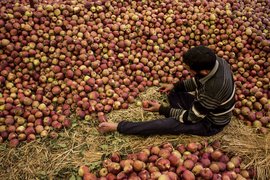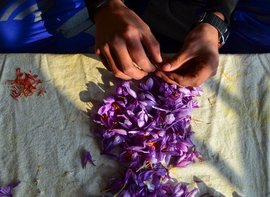Tariq Ahmed spent 10 years as a teacher, getting primary school kids to learn their basics. The 37-year-old was an educational volunteer from 2009-2019 with the central Samagra Shiksha scheme. He was placed in the high-altitude area of Drass to teach the children of migrating Bakarwal families who bring their sheep and goats to graze in Ladakh.
But in 2019, when the state was bifurcated into the two union territories of Jammu and Kashmir (J and K) and Ladakh, he lost his job. As a resident of J and K – his home is in Kalakote in Rajouri district – he is not eligible to teach children outside the UT of J and K.
“Since two separate UT’s were made, the education system for our children has been in a mess,” says Tariq, who blames the authorities for forgetting children of nomads.
“There are no mobile schools, no seasonal teachers available for us in this region from Zero Point to Drass in Kargil district. Our children just end up wandering around all day or pestering locals for food,” says Shamim Ahmad Bajran, sarpanch of Bathera village in Kalakote.
The community of Bakarwals say that there are thousands of temporary schools for migrants within J and K, but their kids miss out when they migrate to Ladakh for six months – between May and October. Here their young ones lose touch with academic instruction and fall behind their peers. Bakarwal community's literacy is at 32 per cent, the lowest among all tribes in the state, says a 2013 report on Scheduled Tribes.
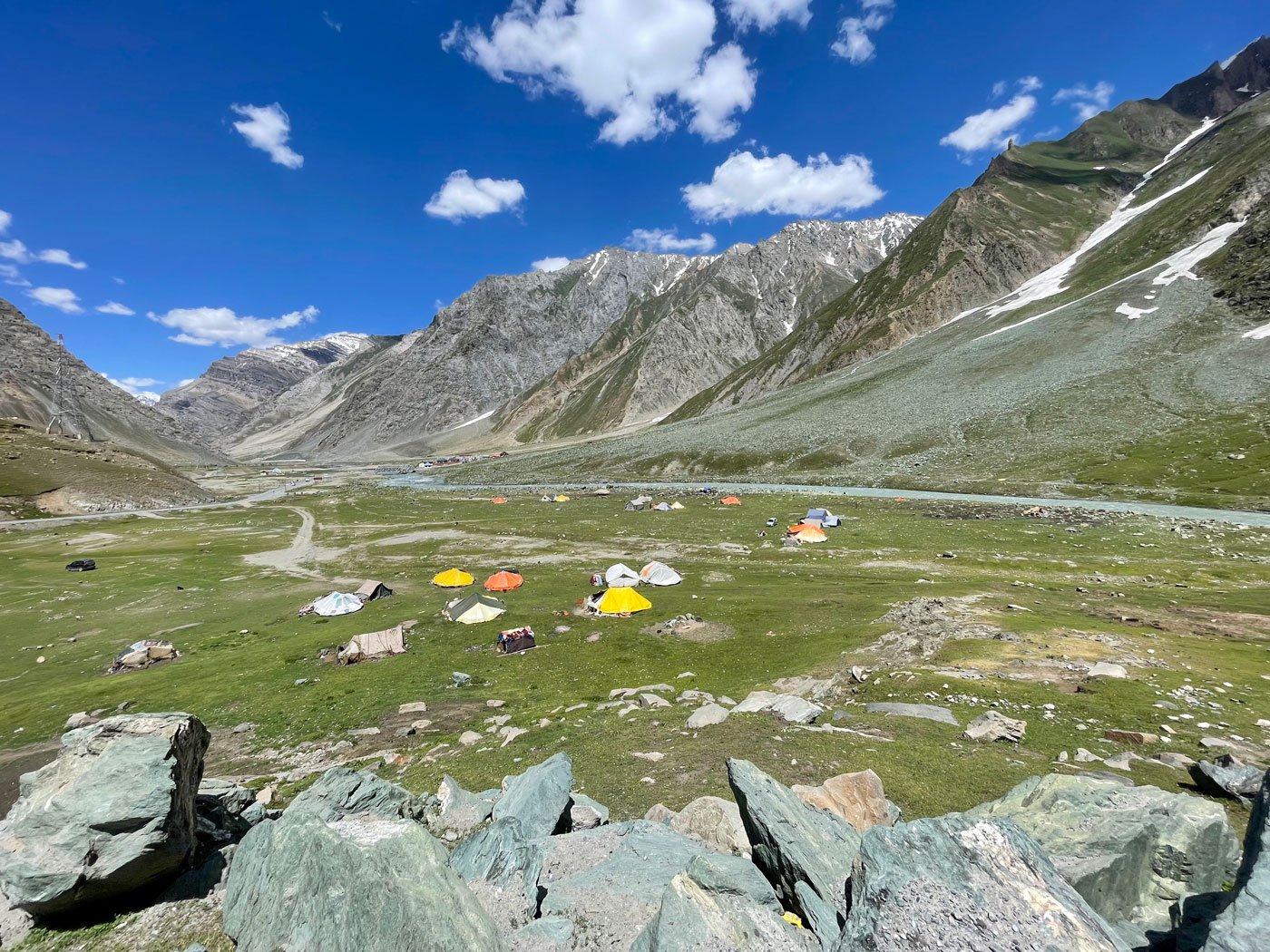
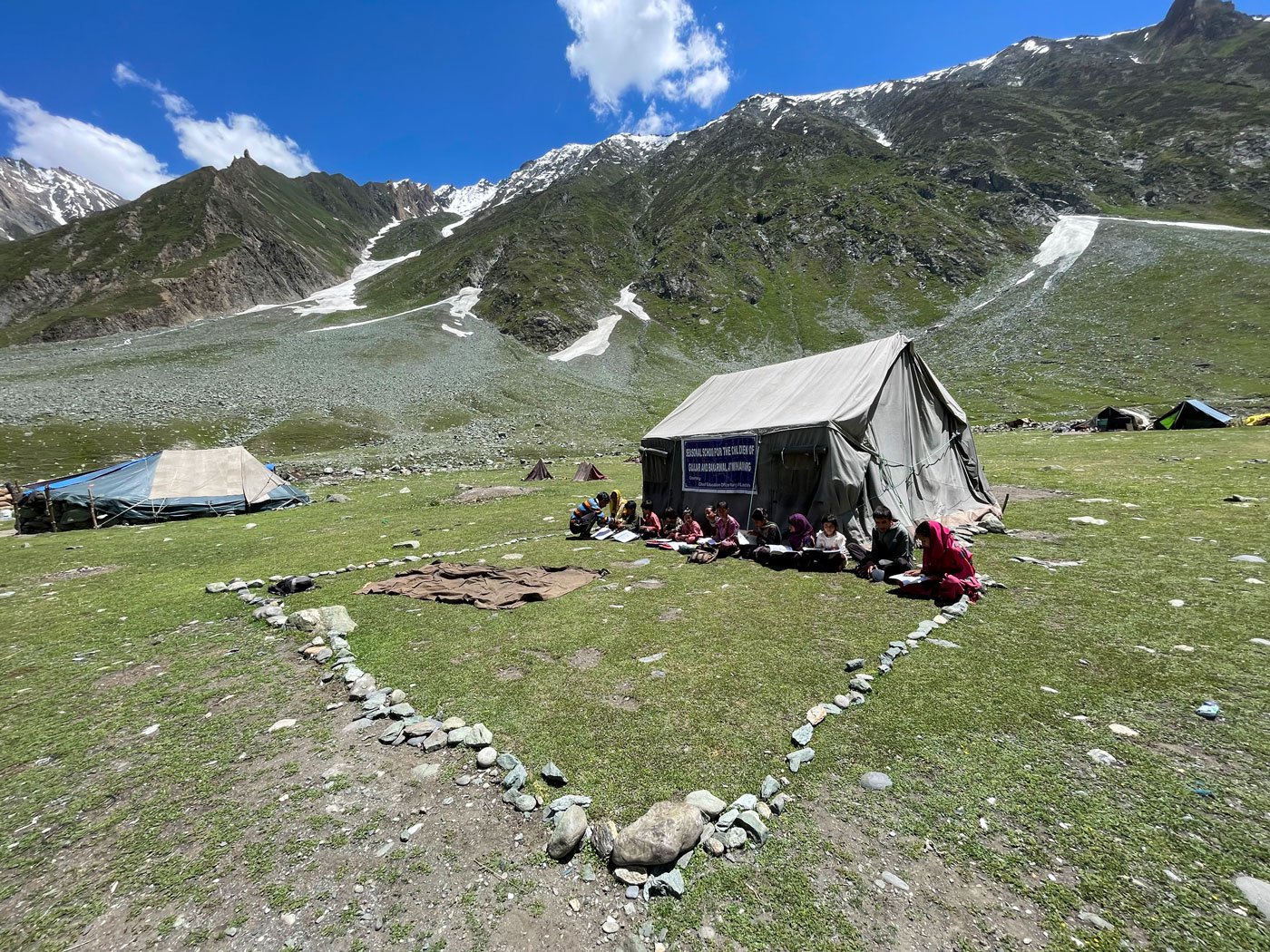
A Bakarwal settlement in Meenamarg, Kargil district of Ladakh. The children of pastoralists travel with their parents who migrate every year with their animals
“Even if our children want to study, there is nothing we can do. When we migrate, their studies stop as a nearby school is roughly 100 kilometres away,” says Amjad Ali Bajran, father to five-year-old Huzaif and three-year-old Shoaib. His family is part of the settlement of 16 Bakarwal families stationed in the stretch from Meenamarg to Drass.
“When we migrate from Rajouri we have to take our children along because it is not possible for us to live without our family for 5-6 months,” says the 30-year-old pastoralist.
The state says they can only arrange for these schools once the education officers in the area file their report. But, “since a nomadic group has gone beyond our boundaries [from Kashmir to Kargil in Ladakh], the Chief Education Officers (CEO) of Kargil in Ladakh doesn't have any administrative control in the matter of citizens from J and K,” says Dr. Deep Raj Kanethia. The project director of Samagra Shiksha, Department of School Education, he says his hands are tied. “We don’t have any administrative control over the education in Kargil after the state was converted into two separate UTs.”
As per the Annual Status of Education Report (Rural 2022) , 55.5 per cent children were enrolled in government schools in 2022 in Jammu and Kashmir. This figure has dropped from 58.3 per cent in 2018.
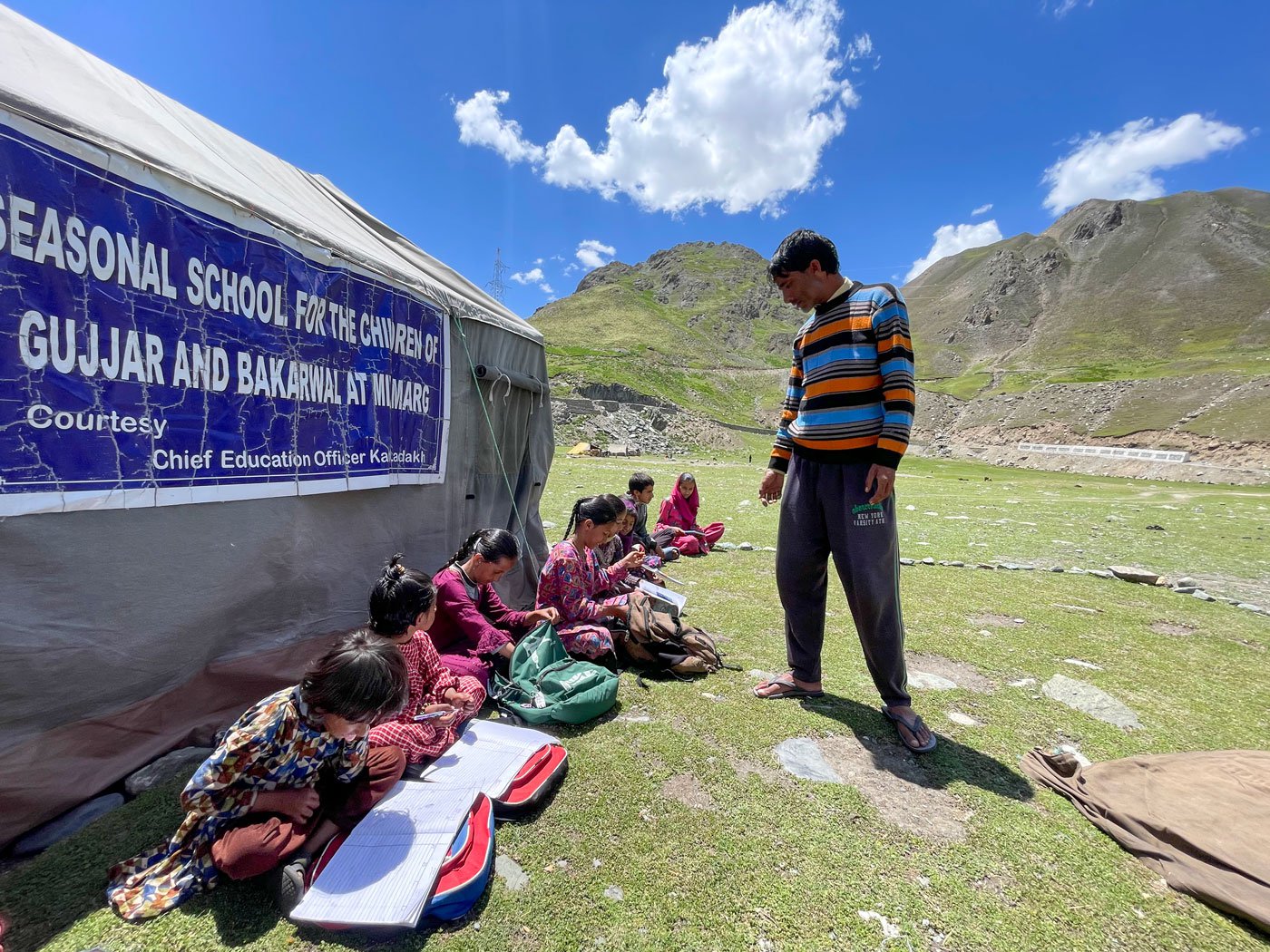
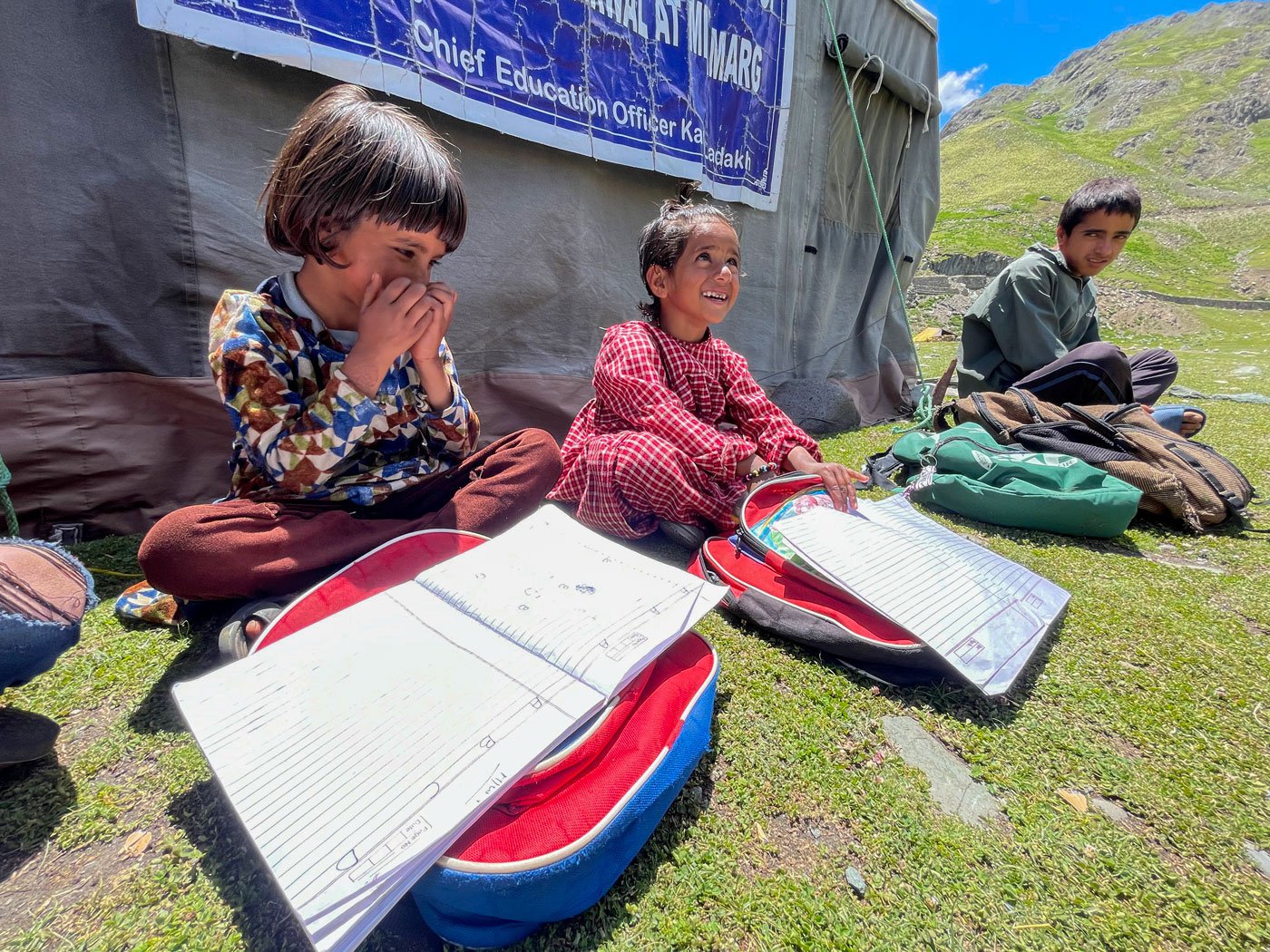
Left: Tariq Ahmad is a herder who was a teacher for 10 years. Here in Meenamarg he spends a few hours every day teaching children ages 3-10. Right: Ishrat, Rifat and Nawaz (from left to right) reading under Tariq's watchful eye
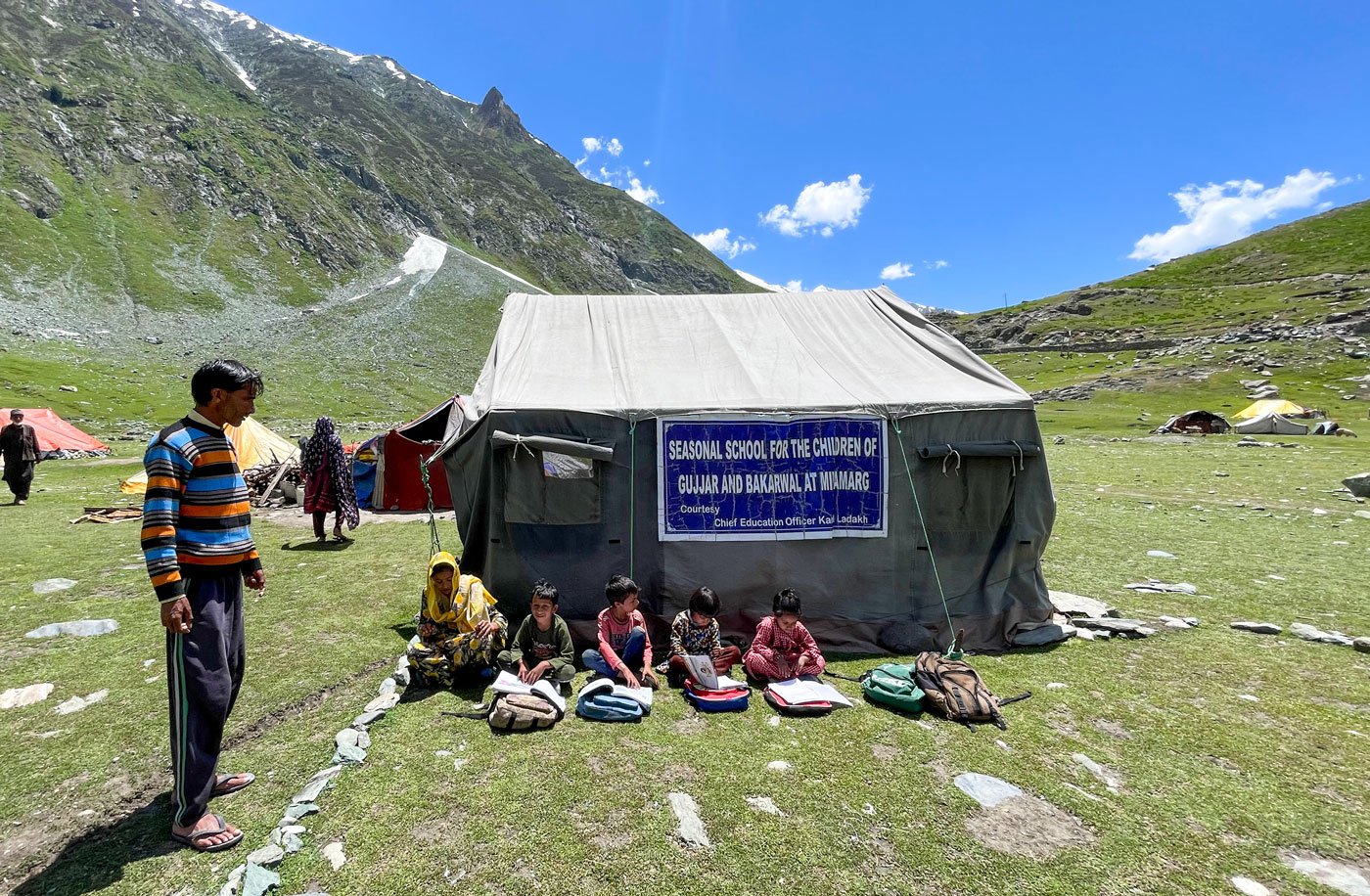
Tariq says he frequently tests the children to ensure they are not forgetting things
Sarpanch Shamim says that J and K government has appointed six seasonal teachers to teach the nomadic children in this region of Kargil, Ladakh where they migrate to, but no teachers are available on the ground. “They come at the end of the migration season and get their duty roster signed by the concerned CEO to withdraw the salary of work they never did,” he points out.
“We are helpless, that is why our children also end up grazing animals or take up some other labour jobs,” says Amjad. “Who wouldn’t want their children to study and have a future?”
Luckily for Amjad and other pastoralists’ children, they have a trained teacher - Tariq – among them. Despite not being employed anymore by the Samagra Shiksha, he hasn’t stopped teaching, and now works with the children of Bakarwals here at Meenamarg who are continuing with learning English, Maths, Science and Urdu. “I feel it is my duty towards my community to teach these kids. It also makes me feel happy and relaxed,” says the young Bakarwal.
Since he is no longer a paid teacher, he also does herding – leaving around 10 a.m. and returning at 4 p.m. Tariq’s family have 60 animals – both sheep and goat – and he is here with his wife and daughter, Rafiq Bano.
The young teacher’s educational journey has not been without its challenges. Recalling his school days he says, “I moved to Srinagar and stayed with my relatives so that I could pursue my studies without any big breaks.” Tariq then went on to complete Class 12 from the Government Boys Higher Secondary School, Soura Srinagar in 2003.
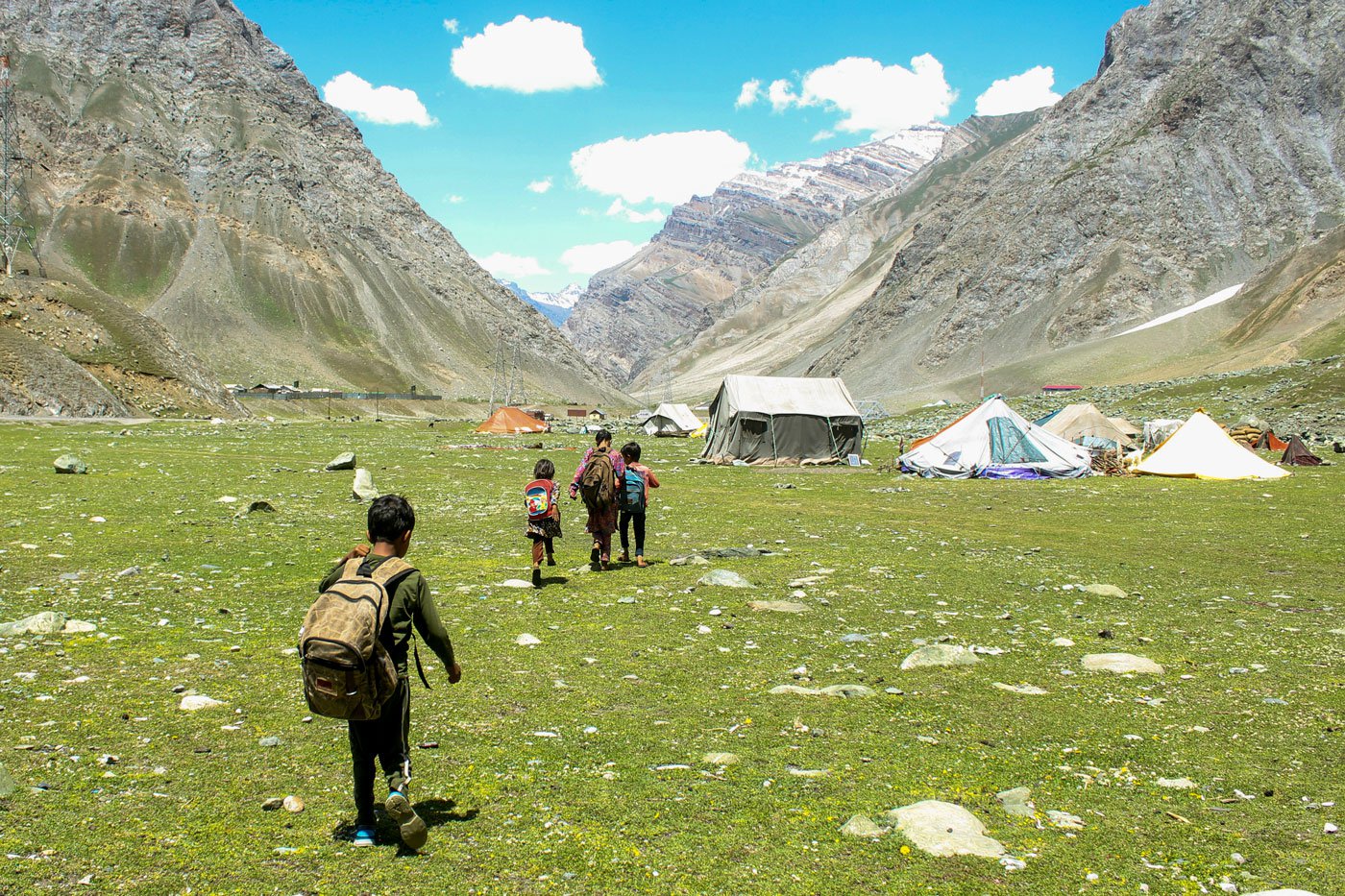
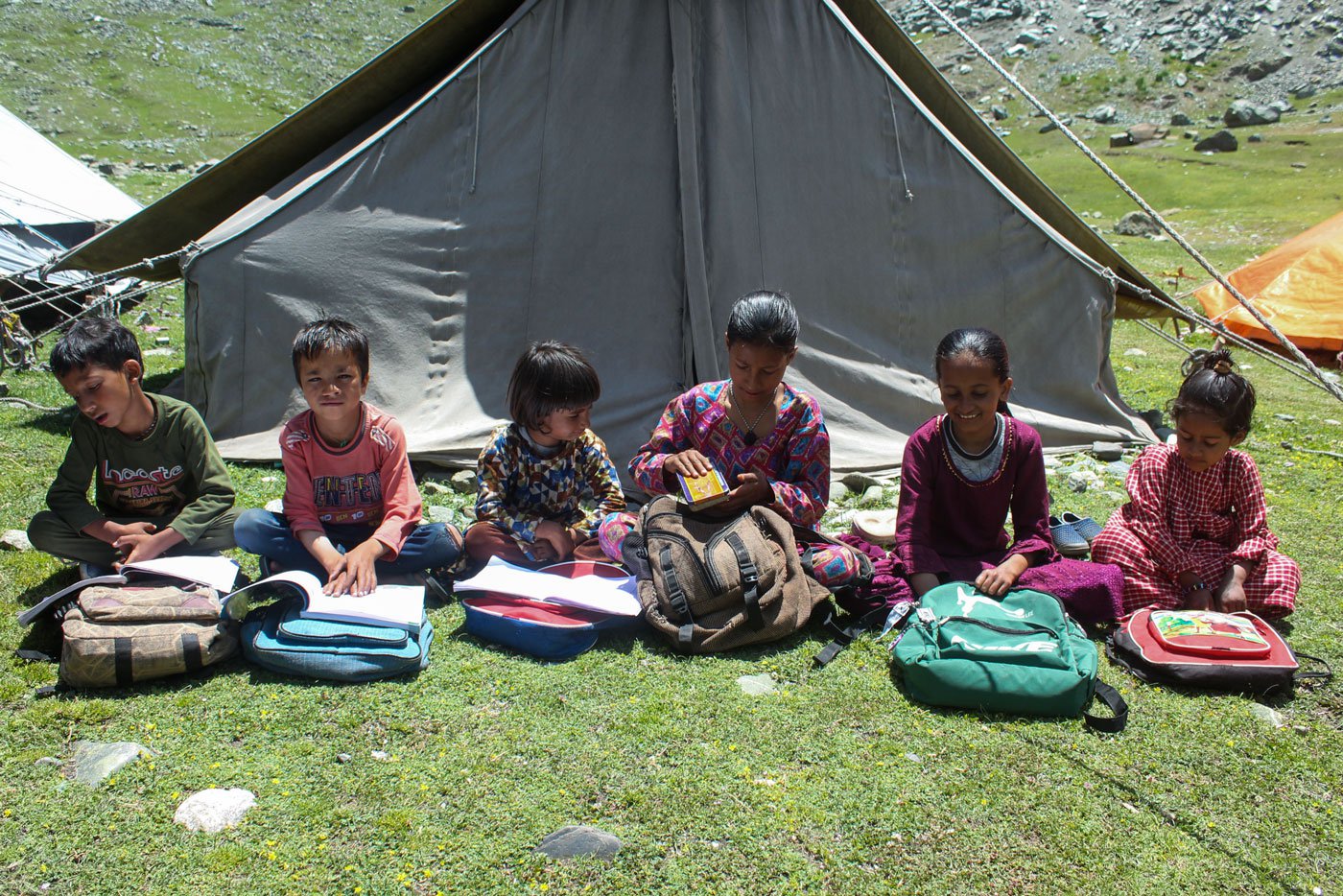
The temporary school often doesn't have teachers, say village elders. 'That is why our children also end up grazing animals or take up some other labour jobs,' says Amjad, a parent
From the Bakarwal community himself, he feels it’s pay back time. “ Abba [father] teaches us all subjects here, but in our school we have different teachers for every subject,” says Rafiq Bano. The 10-year-old is in Class 6 at the JK Government Girls Middle School in Panihar village, in Kalakote tehsil of Rajouri district.
“I want to study and become a teacher so that I can teach these kids like my abba does. We don’t have any teachers here so I will become one to teach them,” adds the young girl.
So children who would otherwise be spending their days playing games or wandering around the mountains, now get a few hours a day with Tariq. On the day this reporter met them in July they were poring over their books. Tariq had the attention of the group of 25, ages 3-10 as they sat near their homes in Meenamarg, trying to get some shade in this high altitude location, above the treeline.
“I am here so these students are able to study but there are other children in higher reaches, what about them? Who will teach them,” says the teacher who teaches for no fees.
Kargil is located in the recently declared (2019) union territory of Ladakh. It was formerly in the state of Jammu and Kashmir.
